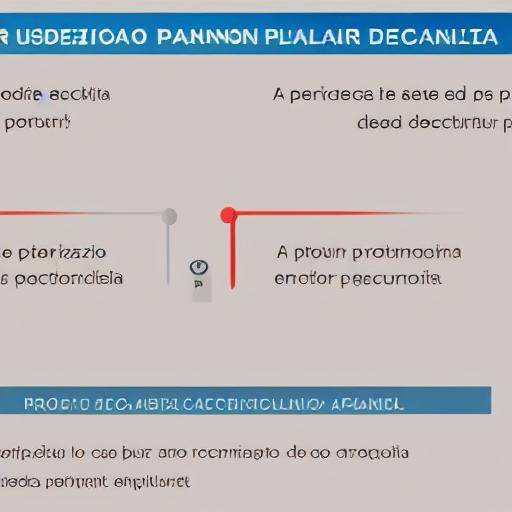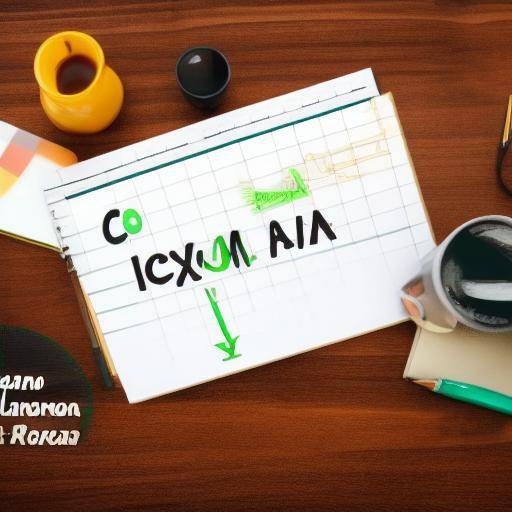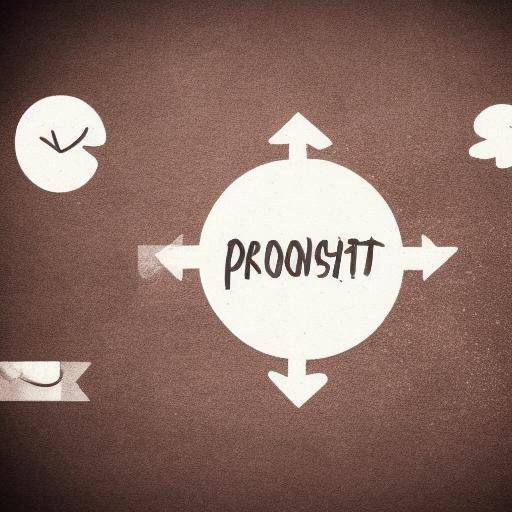
In everyday life, we encounter various challenges and situations that require a proactive approach. The ability to effectively plan becomes essential to develop a proactive attitude that enhances personal and professional productivity. In this article, we will explore in detail the importance of planning in relation to the development of a proactive attitude, together with practical advice and strategies to achieve it. In addition, we will address the relevance of these concepts in the working environment and their impact on achieving goals and objectives.
Introduction
Planning is an essential tool for achieving goals, as it allows to anticipate scenarios, identify obstacles and draw a clear path to the desired goals. On the other hand, a proactive attitude involves taking responsibility for the actions themselves, anticipating problems and making decisions in advance. Combining both skills results in a holistic approach that drives productivity and success both at the personal and professional level.
History and Background
The importance of planning dates back to the dawns of civilization, where ancient societies traced strategies for hunting, agriculture and construction. In the business context, leading leaders such as Peter Drucker and Stephen Covey have emphasized the relevance of planning in the effective management of organizations.
The proactive attitude, popularized by Stephen Covey in his book "The 7 habits of highly effective people", has been considered a fundamental quality for leadership and personal development. These historical and conceptual backgrounds lay the foundation for understanding the importance of these aspects today.
Deep analysis
Effective planning not only involves setting objectives, but also identifying the necessary resources, anticipating possible deviations and designing contingency plans. It also entails the ability to prioritize tasks and optimize the use of time, which in turn fosters a proactive action-oriented mentality and the achievement of results.
On the other hand, the proactive attitude manifests itself in the willingness to lead changes, the search for opportunities and the ability to adapt to adversity. This mentality not only allows to face challenges, but also to influence the environment to generate positive impact.
Comprehensive review
Correct planning and proactive attitude can be applied in various contexts, from project management to day-to-day troubleshooting. The combination of both skills results in a holistic approach that enhances efficiency and effectiveness in achieving goals.
Promoting an organizational culture based on strategic planning and proactive mentality brings many benefits, such as risk reduction, resource optimization and innovation. However, facing the resistance to change and the tendency to complacency represents significant challenges in the implementation of such a mentality in working environments.
Comparative analysis
The interrelationship between planning, proactive attitude and productivity is evident in observing how these dimensions complement each other. Effective planning fuels the proactive mentality by providing a structure for decision-making, while a proactive attitude drives the diligent implementation of the designed plans, thus generating a virtuous circle that enhances productivity.
Practical Tips and Accessible Strategies
- Establish clear and specific goals, disaggregating them in concrete and time-defined tasks.
- Identify potential obstacles and design contingency plans to anticipate deviations.
- Prioritize tasks based on their impact and urgency, thus optimizing the use of time and resources available.
Industry Perspectives and Expert Reviews
Business management experts agree that the combination of planning and proactive attitude is essential for achieving results consistent with a dynamic working environment. The ability to anticipate changes and respond proactively to challenges emerges as a key differentiator between successful organizations and those struggling to keep up with market demands.
Case Studies and Practical Applications
Real case analysis reveals how companies that foster a proactive approach and a strategic planning culture can quickly adapt to market dynamics, identify emerging opportunities and maintain high productivity levels in challenging contexts. Examples of organizations that have embraced these practices successfully demonstrate how the combination of planning and proactivity drives sustainable growth and continuous innovation.
Future Trends and Predictions
As organizations face an increasingly competitive and disruptive business environment, strategic planning and a proactive mindset are expected to be key elements for differentiation and sustainable success. The ability to anticipate changes, identify opportunities and respond agilely and efficiently will be a fundamental pillar in business developments and the achievement of long-term goals.
Conclusions
Effective planning and proactive attitude are not only desirable skills in the workplace, but they also have a significant impact on personal and professional success. By developing a proactive planning and action-oriented mentality, individuals and organizations can overcome obstacles, maximize performance and achieve optimal levels of productivity. The combination of these elements is an integral approach that enhances the achievement of goals and the generation of positive impact.
Frequently asked questions
How can I develop a proactive attitude in my daily life?
Developing a proactive attitude involves raising awareness of your own responsibilities, identifying opportunities for improvement and making early decisions. Practicing anticipation and initiative in your daily life will gradually foster a proactive mentality.
What role does planning play in developing a proactive mentality?
Effective planning provides a structure for early decision-making, identification of opportunities and design of strategic actions. In consciously planning, a proactive action-oriented and results-oriented mentality is promoted.
Why is it important to be proactive in the working environment?
A proactive attitude in the working environment allows us to anticipate challenges, influence the environment to generate positive changes and take responsibility for results. This mentality has a significant impact on effectiveness, innovation and success in dynamic working environments.
How can I apply planning and proactivity in project management?
In project management, effective planning allows to anticipate risks, establish milestones and define strategies, while a proactive attitude drives the diligent execution of tasks and agile resolution of problems. Combining both skills enhances efficiency and achieving goals.
What is the difference between being reagents and being proactive?
A reactive attitude manifests itself in responding to events once they occur, while a proactive mentality involves taking the initiative and anticipating events. Being proactive means being in control of your actions, while being reactive implies being influenced by external circumstances.
How does a proactive attitude influence problem solving?
A proactive attitude facilitates the early identification of problems, the search for efficient solutions and early decision-making to prevent adverse situations. In assuming responsibility for problem solving, a proactive approach to action and continuous learning is promoted.
Conclusion
Developing a proactive attitude through effective planning is a fundamental aspect both in the personal and professional spheres. In building capacity to anticipate challenges, identify opportunities and make early decisions, a path to achieving goals and achieving consistent results is established. The combination of strategic planning and a proactive mentality not only boosts productivity, but also enhances sustainable growth and continuous innovation in the working environment and society at large.
In short, focusing on effective planning and a proactive mentality, a comprehensive approach is established that maximizes performance, promotes adaptability and enhances the achievement of goals in all areas of life.






















































